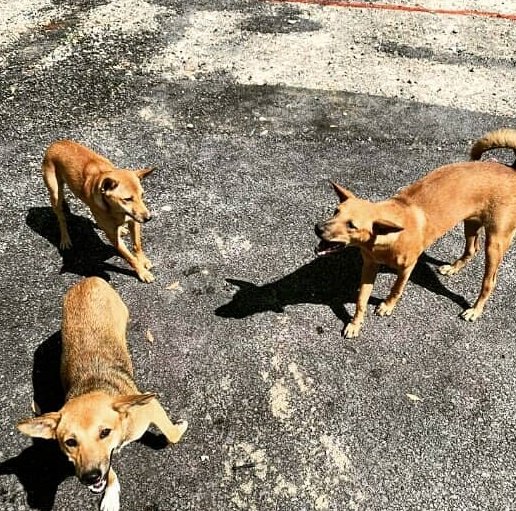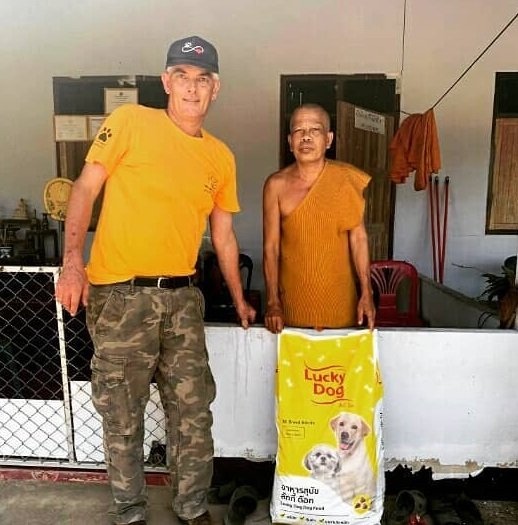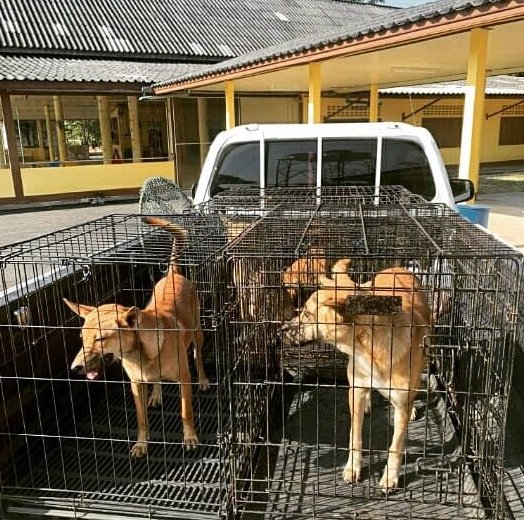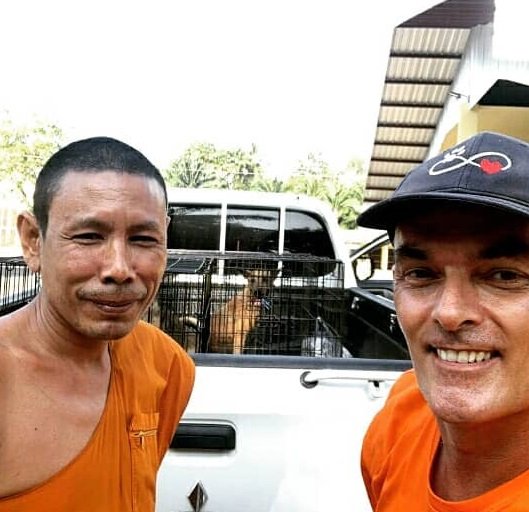It isn't fair to call it a favorite but that is what it is if I am being honest. The reason why I say this is because the monks there are very receptive to our help and seem to care a bit more about actually helping us solve the problem with the stray animal population in their region. It is a bit of a "pet project" (pun intended) on our part because the temple is far enough away from any heavily populated area that getting the entire stray population under control is a lot more manageable.

The temple is Wat Pho Riang (Pho Riang Temple) and it is one of 3 temple "projects" that we have going on at the moment. The other two are more difficult processes because they are in more urban areas and therefore they have more animals wandering in and also a greater opportunity that people are going to drop off unwanted animals there which is a tradition in this country. When you no longer want a dog (which is a notion I can not understand) it is tradition to drop the animal off at a temple and in exchange for the monks looking after said animal for its life you are meant to make contributions to that temple for life.
I have no idea if all (or any) of the people who drop off the dogs actual fulfill their end of the bargain but that is what is meant to happen.

At Pho Riang the monks seem to have more of a hands on approach and they actually do alert us if a new dog, particularly a female ends up being dropped off at their gates. Ideally we would like to sterilize all of the animals male or female, but due to financial limitations we have to focus on the ones that are more likely to contribute to the continuing problems of excessive replication. This is one aspect of temples that are wildly out of control all over the country: When you have a higher concentration of dogs - which nearly every temple does, they are going to reproduce as much as possible. Therefore the population gets out of control very rapidly, and then there is the increased risk of not having enough food and also the spreading of disease and also ticks.

I'm not suggesting that the other temples have not been receptive to our outreach, but Wat Pho Riang definitely seems to be more interested in our end result whereas some of the other temples don't even let us know if there is a disease outbreak and we have to discover on our own if any new animals have been introduced to the population. This is far more difficult for us to ascertain than it is for the monks who live there every day.

At Pho Riang we think we have the population completely under control as we have sterilized, vaccinated, and treated every single dog of the 15 or so that are there. We stop by on a regular basis to make sure that they have enough food to keep the dogs healthy and have a chat with the monks to make sure that everything is going well.
At this temple, the dropping off of animals hasn't happened in quite some time according to the men who live there, and the ones that exist in their compound now have been there fore quite some time and they reckon that all of the dogs are actually in the same family.
We won't know for sure for another couple of months or so, but so far since our involvement with this temple we have not had any new litters of puppies pop up and this is a big win in our minds. It is only through this level of teamwork can we achieve our objective of getting the stray dog and cat population under control. Krabi-town and the populated beach areas are a different story altogether and will be considerably more complicated. We will continue working on these for as long as it takes as well but it is nice to see that what we are trying to do is actually possible, even if it is just one very small and secluded temple at a time.
If you would like to see how you can help out or simply spread the word, please visit our website at
http://krabianimalwelfare.org

เป็นผู้สนับสนุนรายเดือนหรือบริจาคครั้งเดียวได้ที่: